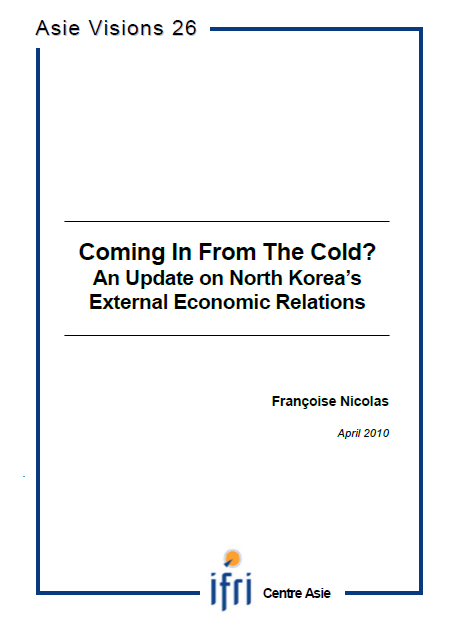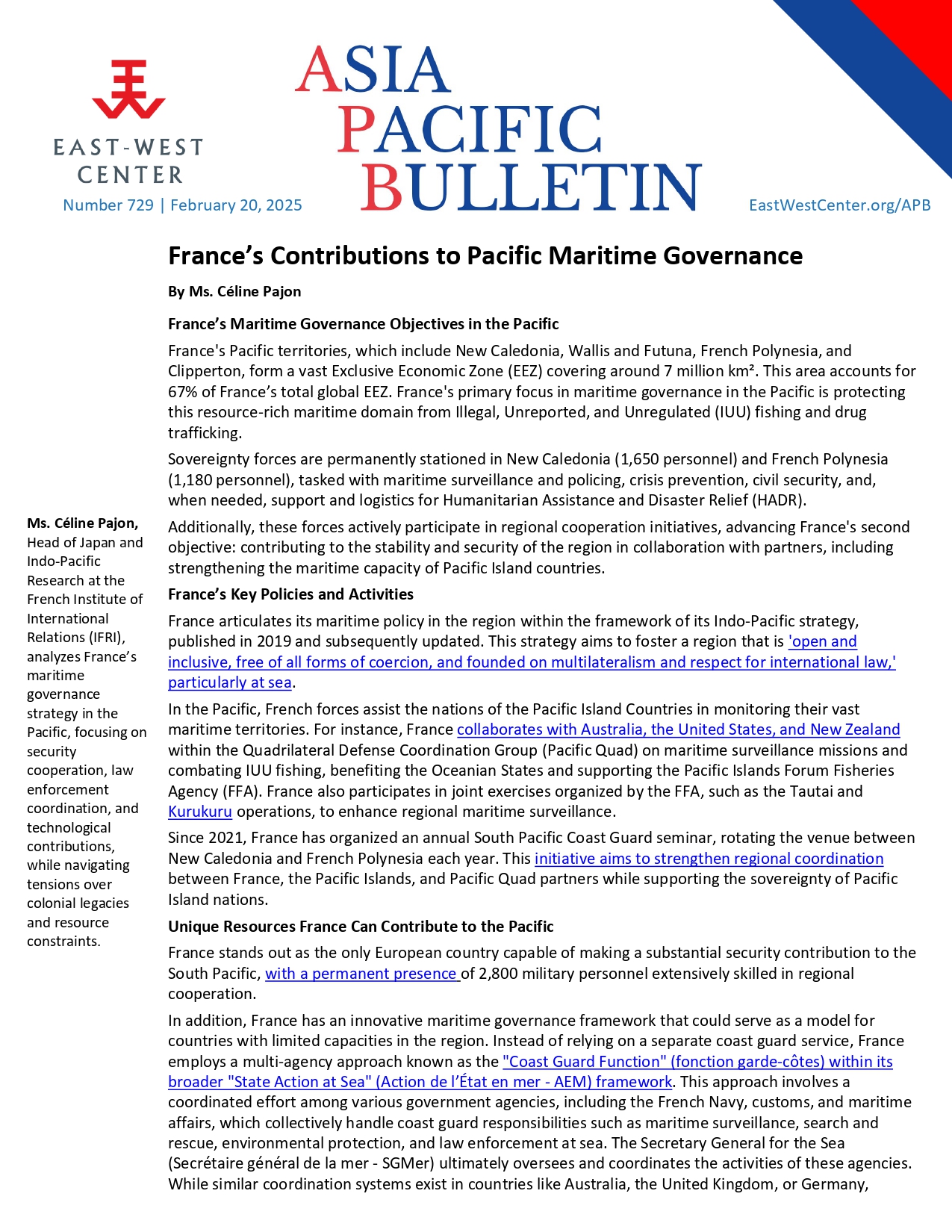Coming in from the Cold? An Update on North Korea's External Economic Relations

This brief analysis of the current external economic relations of the Democratic People’s Republic of Korea (DPRK) leads to a number of conclusions.
First, the North Korean economy maintains very limited exposure to the outside world and, as a result, to external influence. In terms of volume North Korea's trade is minuscule, even in relation with the size of its economy. This is also the case for foreign direct investment inflows.
Secondly, although North Korea is less isolated than often thought, its trade and investment flows are very heavily polarized both geographically and sectorally, limiting de facto their potential impact. In contrast to what was the case during the Soviet era, North Korea's main economic partners are not ideological partners but neighboring economies, namely China and South Korea. They are major partners in trade as well as in FDI. Russia still plays a non-negligible role but is in no way comparable to what was the case before the demise of the Soviet bloc.
Thirdly, North Korea's external economic relations are very much dictated by political considerations. Politics accounts both for the choice of partners and for the nature of the economic relations.
Fourthly, and more importantly, the very distinct nature of the DPRK's connection with the rest of the world, and primarily with its two major economic partners, sets it apart from other transition economies and in particular from China, but also from Vietnam. In the case of North Korea, economic openness, although announced time and again as an official objective, cannot be seen as an instrument for enhancing competitiveness or as part of a development strategy. The recent, renewed signs of reform in the direction of increased openness should thus be interpreted with utmost caution.
Fifthly, the structure of the country's external trade is indicative of an economy in survival mode. The substantial aid component in the inter-Korean trade and FDI relationship undoubtedly further substantiates such a claim. Surprisingly, relations between North Korea and China are more often based on a market-economy logic, although this only holds true for trade flows and not FDI flows. The probability of change through trade appears still very limited.
Lastly, the role the European Union may play in the region remains very much an open question but the margin of maneuver is limited. Given the state of play described earlier, it would be extremely naïve to believe that a European engagement strategy vis-à-vis the DPRK could contribute to economic change. In addition, the country's lack of attractiveness for potential investors is a further obstacle. However, the persistent uncertainty and the lack of visibility over the political and economic evolution of the DPRK should not deter European interest in the region and, far to the contrary, should provide a strong incentive to closely monitor the economic moves made in Pyongyang.

Available in:
Regions and themes
ISBN / ISSN
Share
Download the full analysis
This page contains only a summary of our work. If you would like to have access to all the information from our research on the subject, you can download the full version in PDF format.
Coming in from the Cold? An Update on North Korea's External Economic Relations
Related centers and programs
Discover our other research centers and programsFind out more
Discover all our analysesJammu and Kashmir in the Aftermath of August 2019
The abrogation of Article 370, which granted special status to the state of Jammu and Kashmir (J&K), has been on the agenda of the Bharatiya Janata Party (BJP) for many decades.

France’s Contributions to Pacific Maritime Governance
France stands out as the only European country capable of making a substantial security contribution to the South Pacific, with a permanent presence of 2,800 military personnel extensively skilled in regional cooperation.
Unlocking India’s Energy Transition: Addressing Grid Flexibility Challenges and Solutions
India is rapidly scaling up its renewable energy (RE) capacity, adding 15–20 GW annually, but the ambitious goal of 500 GW of non-fossil capacity by 2030 is at risk unless the pace accelerates.

The China-Russia Partnership and the Ukraine War: Aligned but not allied
China and Russia maintain a strategic partnership rooted in shared opposition to the U.S. and liberal democracies, but their relationship is shaped more by pragmatism than trust.










